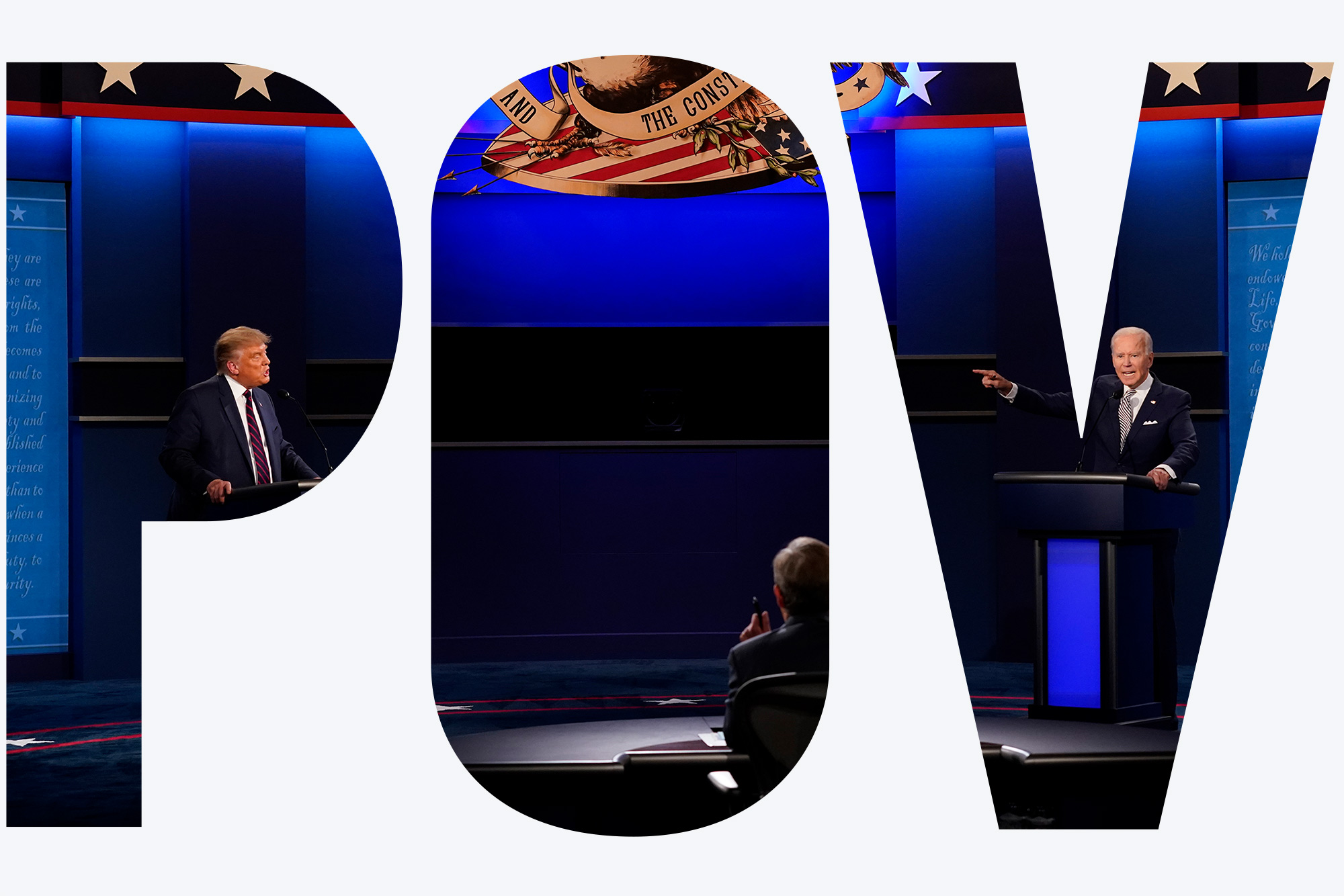POV: Presidential Debates: What Are They Good For? Absolutely Nothing


Photo by Patrick Semansky/AP
POV: Presidential Debates: What Are They Good For? Absolutely Nothing
Anyone who thinks last week’s “exercise in logorrhea was a healthy thing for democracy needs to do some serious rethinking”
After last week’s 90-minute tweet storm, er, presidential debate, it’s time to ask an obvious question. What purpose do they serve?
I was taught in school that debates were contests between two teams offering their best rhetorical defenses for and against topics such as “Resolved: The United States should adopt a declaratory nuclear policy of no first use.”
They first became popular in 1858 when a lanky Illinois Republican lawyer named Abraham Lincoln challenged incumbent Democrat Stephen Douglas to a series of seven US Senate debates, focused mainly on the continued existence of slavery.
Or whether white supremacy should be the law of the land.
Fast forward 100 years and the televised debate became part of the presidential campaign trail when a young Massachusetts Democratic senator named John F. Kennedy [Hon.’55] took on Republican Vice President Richard M. Nixon, of whom his boss, Dwight Eisenhower, when asked to name a policy Nixon had influenced, replied: “If you give me a week, I might think of one. I don’t remember.”
Nixon, who was described as “in pain, looked green, sallow, and needed a shave,” had declined makeup for his 5 o’clock shadow. The hot TV lights also prompted him to sweat, some of which pooled on his upper lip.
TV viewers declared Kennedy, whose seemingly perpetual tan could have actually been a sign of his Addison’s disease, as the winner of the contest. It has widely been believed that radio listeners, lacking the visuals, scored the battle the other way. But those watching on TV scored it a Kennedy win because the 43-year-old displayed “vigah,” a trait translated outside of Massachusetts as vigor. He was calm, cool, and collected.
Lyndon Johnson saw no need to debate Barry Goldwater in 1964, and to no one’s surprise, Nixon declined to debate in 1968 and 1972.
Since the quadrennial “tradition” resumed in 1976, debates have been highlighted by gaffes and quips, from Gerald Ford “liberating Eastern Europe” in a parry with Jimmy Carter to Ronald Reagan declining to make an issue of Walter Mondale’s “youth and inexperience” to George H. W. Bush looking at his watch and Al Gore sighing on camera.
Which brings us to last week’s chaos in Cleveland.
I refuse to slander my hometown by reviving the old line about Mistake on the Lake. But anyone who thinks that this exercise in logorrhea was a healthy thing for democracy needs to do some serious rethinking.
Television is central to the existence of Donald J. Trump, whether it was his reality show host stint that revived a financially foundering company to the nonstop unedited coverage of his 2016 campaign rallies.
Twitter has simply been a 280-character version of that free media. But facing longer odds in 2020, he opted to bring those rants to a live audience that doesn’t follow him on Twitter.
Given the hands-off “debate” rules that included no moderator fact-checking of a man who has uttered more than 20,000 lies in four years, and is equipped with a bullying personality, the outcome was inevitable. Quips about electric dog collars being the only solution are only slightly off the mark.
The Commission on Presidential Debates, the nonpartisan group that sponsors these supposedly pivotal events in informing voters, has promised changes before the next presidential debate, still scheduled for October 15 (the vice presidential debate is October 7). Many have suggested microphone kill switches—despite Trump’s propensity to shout over helicopter rotor wash.
Even if that was successful in limiting Trump’s infantile and inflammatory outbursts to his assigned times, nothing could temper the steady stream of lies, half-truths, disinformation, and threats.
So I’ve come to the conclusion that the only rational solution for an increasingly irrational nation is ending this experiment.
After all, we’ll always have Twitter.
This Series
Also in
-
November 7, 2020
Joe Biden Defeats President Trump, Clearing the Way to Becoming 46th US President
-
November 7, 2020
How Does the Electoral College Work and Other Election Questions
-
November 7, 2020
Joe Biden Will Be the Oldest President Elected. Is That Worrisome?

Comments & Discussion
Boston University moderates comments to facilitate an informed, substantive, civil conversation. Abusive, profane, self-promotional, misleading, incoherent or off-topic comments will be rejected. Moderators are staffed during regular business hours (EST) and can only accept comments written in English. Statistics or facts must include a citation or a link to the citation.